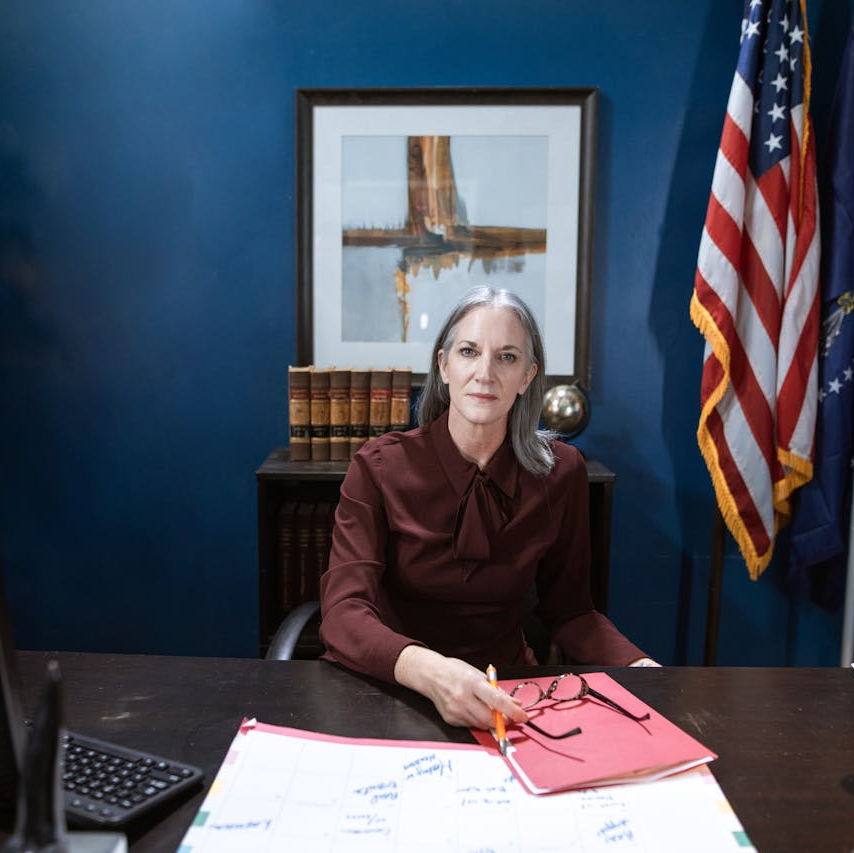If you’ve attended a lecture at a nearby hotel or a sponsored retirement course at work, you may have heard persuasive reasons that claim everyone must work with a financial advisor. They might have used graphs and charts or passionate arguments to persuade you not to pursue a “do it yourself” (DIY) retirement strategy.
They’ll say giving your retirement plan to a seasoned retirement planner is your best chance of financially surviving your retirement years. But is there any truth to this broad statement?
This article examines the need to hire a financial adviser for retirement planning.
• Statement: Federal employees need a financial advisor to manage their financial plans!
• Possible justification for this opinion: Federal retirement is distinctive and challenging. But does it mean federal employees can’t learn how to manage this area of their earning lives on their own?
How can an advisor improve a federal employee’s retirement planning?
A financial advisor’s knowledge, experience, and focus are likely their most essential qualities. Examples include:
• Knowledge of federal retirement systems, multiple planning alternatives, and design variables.
• Understanding the potential effects of investing options on TSP, IRA, SSA, pensions, etc.
• Knowledge of how to plan for desired results that are based on needs and goals.
• Information on potential difficulties that a federal employee might not have considered and strategies for avoiding them, either before or after an event.
• The advisor’s capacity for maintaining concentration in the face of market turbulence. Maintaining composure during rapid market volatility might be challenging when it’s your money.
• Understanding suitable asset allocations and having the tools to get there. During retirement, asset allocations may frequently shift. Inadequate allocations may result in growth that is less than planned or at undue risk.
How can I tell if working with a financial advisor would benefit me?
1. Are you fully aware of how to calculate the potential impact of inflation on a retirement plan?
2. Can you determine an adequate asset allocation mix on your own?
3. Are you aware of your level of risk tolerance and how to find and evaluate an investment portfolio that fits that level?
4. Are you aware of the arithmetic in extending your TSP (or other retirement savings) using your federal pension/annuity and anticipated Social Security income benefits?
5. Can you do math well?
6. Time management  Are you ready to manage your retirement assets daily?
7. Do you think you can manage your retirement savings to a long-term performance level on par with a seasoned financial advisor with a federal focus?
According to research cited by Forbes, DIY investors who deal with financial advisers can expect 3% higher annual returns (after costs) than those who don’t. That might result in a 34.4% larger retirement nest egg in just ten years. (3% annually compounded) According to Forbes, the study “identifies how smart decision-making might boost sustainable lifetime income on a risk-adjusted basis.”
8. Do you have a strategy to deal with potential retirement planning hazards and a list of them?
9. Are you ready to develop realistic plans to meet your goals and demands during retirement?
10. How, when, and why will you know when to adjust allocations?
Methods for vetting prospective financial advisors
Most consultants will gladly accept your money, but it’s strongly advised to go for one who genuinely comprehends federal retirement systems.
Before entrusting your finances and retirement to a financial planning professional (advisor, manager, planner, etc.), ensure they have the necessary knowledge required for the job. Find out first if their primary areas of interest are federal retirement and federal employees.
Avoid working with advisors that cast a wide net and say they “work with everyone” since they are likely unfamiliar with the federal employee retirement system. You shouldn’t entrust your financial destiny to someone who lacks the necessary knowledge, even though they might be good people with the best intentions.
Does everyone need a financial planner?
No two persons have the exact same wants if you accept that no two people are the same. Success may depend on prior knowledge, comprehension of the above factors, and government employees’ needs. The desire to DIY this critical aspect of a federal employee’s financial life should also be considered. Therefore, consulting an advisor may be a wise choice for some people while not being necessary for others.
Contact Information:
Email: [email protected]
Phone: 3604642979
Bio:
After entering the financial services industry in 1994, it was a desire to guide people towards their financial independence that drove Aaron to start Steele Capital Management in 2013. Armed with an extensive background in financial planning and commercial banking coupled with a sincere passion for helping people, Aaron has the expertise and affinity for serving the unique needs of those in transition. Clients benefit from his objective financial solutions and education aligned solely withhelping them pursue the most comfortable financial life possible.Born in Olympia, Washington, Aaron spent much of his childhood in Denver, Colorado. An area outside of Phoenix, Arizona, known as the East Valley, occupies a special place in Aaron’s heart. It is where he graduated from Arizona State University with a Bachelor of Science degree in Business Administration, started a family, and advanced his professional career.Having now returned to his hometown of Olympia, and with the days of coaching his sons football and baseball teams behind him, he now has time to pursue his civic passions. Aaron is proud to serve on the Board of Regents Leadership for Thurston County as the Secretary and Treasurer for the Morningside area. His past affiliations include the West Olympia Rotary and has served on various committees for organizations throughout his community.Aaron and his beautiful wife, Holly, a Registered Nurse, consider their greatest accomplishment having raised Thomas and Tate, their two intelligent and motivated sons. Their oldest son Tate is following in his father’s entrepreneurial footsteps and currently attends the Carson College of Business at Washington State University. Their beloved youngest son, Thomas, is a student at Olympia High School.Focused on helping veterans and their families navigate the maze of long-term care solutions, Aaron specializes in customized strategies to avoid the financial crisis that care related expenses can create. Experience has shown him that many seniors are not prepared for the economic transition that takes place as they reach an advanced age.With support from the American Academy of Benefit Planners – an organization with expertise and resources on the intricacies of government benefits – he helps clients close the gap between the cost of care and their income while protecting their assets from depletion.Aaron can help you and your family to create, preserve and protect your legacy.That’s making a difference.
Disclosure:
Disclosure:Investment advisory services are offered through BWM Advisory, LLC (BWM). BWM is registered as an Investment Advisor located in Scottsdale, Arizona, and only conducts business in states where it is properly licensed, notice filed, or is excluded from notice filing requirements. BWM does not accept or take responsibility for acting on time-sensitive instructions sent by email or other electronic means. Content shared or published through this medium is only intended for an audience in the States the Advisor is licensed in. If you are not the intended recipient, you are hereby notified that any dissemination, distribution, or copy of this transmission is strictly prohibited. If you receive this communication in error, please immediately notify the sender. The information included should not be considered investment advice. There are risks involved with investing which may include market fluctuation and possible loss of principal value. Carefully consider the risks and possible consequences involved prior to making an investment decision.Confidential Notice and Disclosure: Electronic mail sent over the internet is not secure and could be intercepted by a third party. For your protection, avoid sending confidential identifying information, such as account and social security numbers. Further, do not send time-sensitive, action-oriented messages, such as transaction orders, fund transfer instructions, or check stop payments, as it is our policy not to accept such items electronically. All e-mail sent to or from this address will be received or otherwise recorded by the sender’s corporate e-mail system and is subject to archival, monitoring or review by, and/or disclosure to, someone other than the recipient as permitted and required by the Securities and Exchange Commission. Please contact your advisor if there are any changes in your personal/financial situation or investment objectives for the purpose of reviewing/evaluating/revising our previous recommendations and/or services. Additionally, if you change your address or fail to receive account statements from your account custodian, please contact our office at [email protected] or 800-779-4183.













